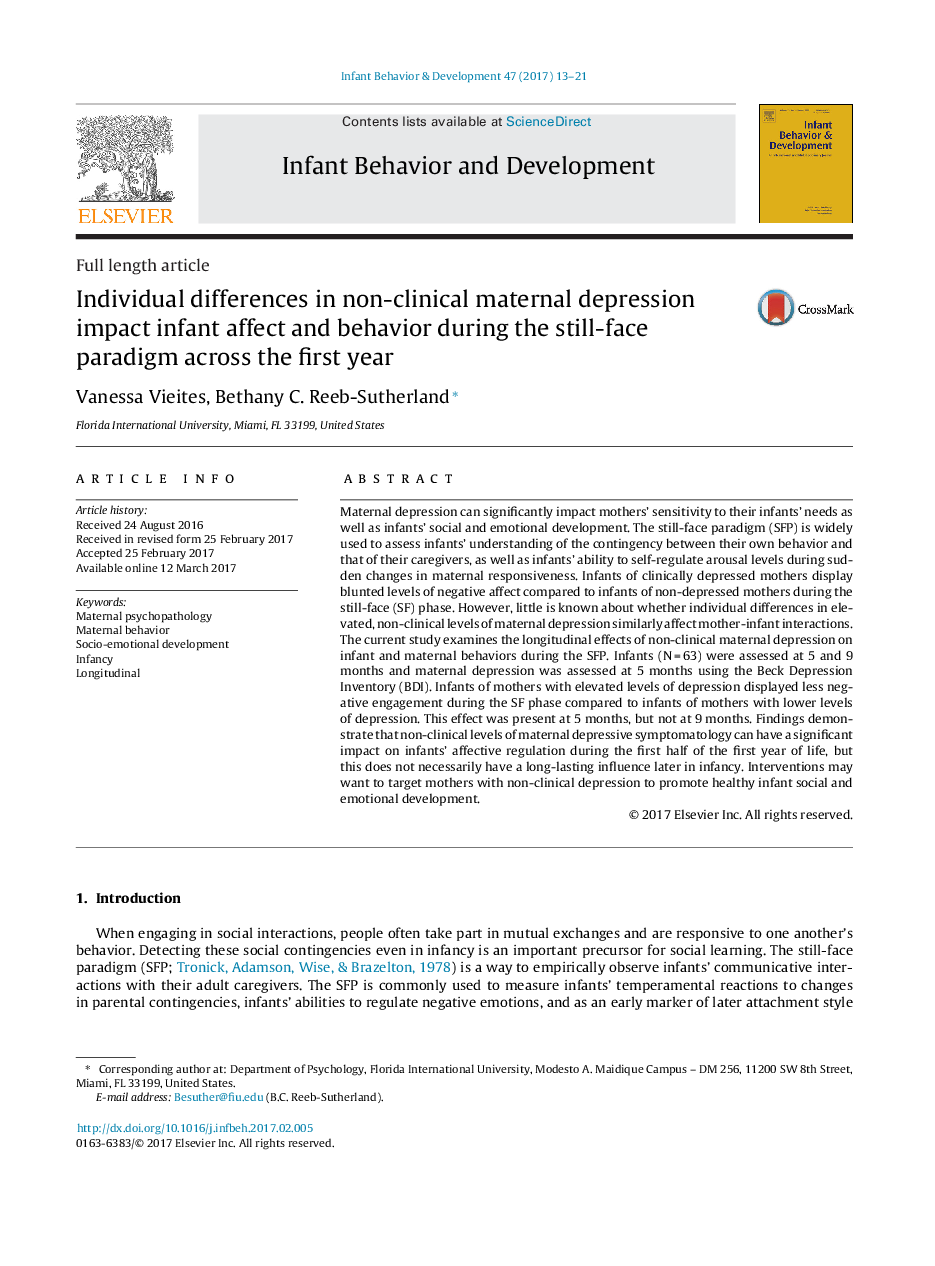| کد مقاله | کد نشریه | سال انتشار | مقاله انگلیسی | نسخه تمام متن |
|---|---|---|---|---|
| 5039824 | 1473414 | 2017 | 9 صفحه PDF | دانلود رایگان |
- Longitudinal design examined mothers and infants in SFP at 5 and 9 months of age.
- Elevated maternal depression led to blunted negativity at 5 months during SF phase.
- Blunted negativity during SF phase was no longer present at 9 months.
- Individual differences in maternal depression did not affect maternal behavior.
- Slight elevations in maternal depression impact infant socio-emotional development.
Maternal depression can significantly impact mothers' sensitivity to their infants' needs as well as infants' social and emotional development. The still-face paradigm (SFP) is widely used to assess infants' understanding of the contingency between their own behavior and that of their caregivers, as well as infants' ability to self-regulate arousal levels during sudden changes in maternal responsiveness. Infants of clinically depressed mothers display blunted levels of negative affect compared to infants of non-depressed mothers during the still-face (SF) phase. However, little is known about whether individual differences in elevated, non-clinical levels of maternal depression similarly affect mother-infant interactions. The current study examines the longitudinal effects of non-clinical maternal depression on infant and maternal behaviors during the SFP. Infants (NÂ =Â 63) were assessed at 5 and 9 months and maternal depression was assessed at 5 months using the Beck Depression Inventory (BDI). Infants of mothers with elevated levels of depression displayed less negative engagement during the SF phase compared to infants of mothers with lower levels of depression. This effect was present at 5 months, but not at 9 months. Findings demonstrate that non-clinical levels of maternal depressive symptomatology can have a significant impact on infants' affective regulation during the first half of the first year of life, but this does not necessarily have a long-lasting influence later in infancy. Interventions may want to target mothers with non-clinical depression to promote healthy infant social and emotional development.
Journal: Infant Behavior and Development - Volume 47, May 2017, Pages 13-21
